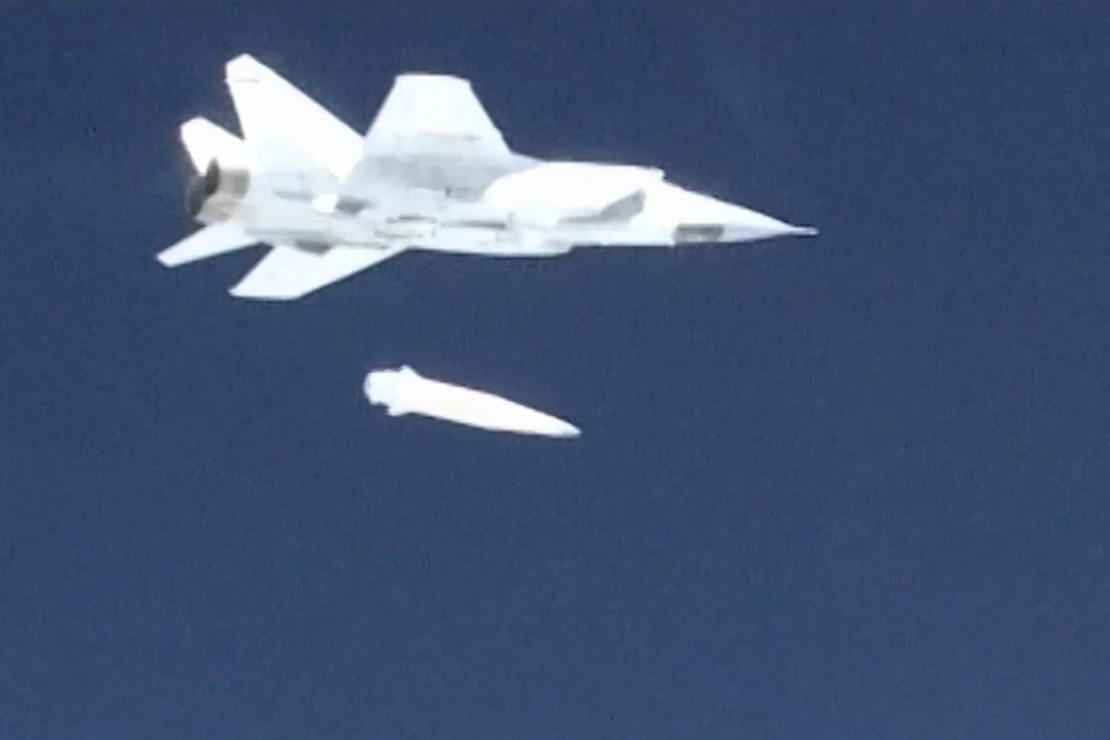
Last night Politico Europe published an interesting story about where Russia is starting to feel the pinch as it tries to keep its war machine going. Despite sanctions, Russia has managed to keep selling lots of oil and that has kept its economy from collapsing. But while it has lots of cash on hand it’s not so easy to import supplies of high tech chips that are needed for its weapons of war. In order to find those parts, Russia has put together a shopping list.
Having fired off (or lost in combat) way more of their missile firepower than they originally anticipated, Moscow’s soldiers are now increasingly relying on ancient stocks of primitive Soviet-era munitions while Western-armed Ukrainian forces are battling to turn the tide in a southern counteroffensive with pinpoint strikes on munition dumps and key infrastructure such as bridges.
Kyiv is acutely aware that the outcome of the war is likely to hinge on whether Russia finds a way to regain access to high-tech chips, and is out to ensure it doesn’t get them. In order to flag the danger, Ukraine is sending out international warnings that the Kremlin has drawn up shopping lists of semiconductors, transformers, connectors, casings, transistors, insulators and other components, most made by companies in the U.S., Germany, the Netherlands, the U.K., Taiwan and Japan, among others, which it needs to fuel its war effort…
Ukrainian Prime Minister Denys Shmyhal stressed the war had come to an inflection point where the technological edge was proving decisive.
“According to our information, Russians have already spent almost half … of their weaponry arsenal,” he told POLITICO.
Ukraine believes Russia is down to its last 50 hypersonic missiles which rely on high tech chips for their guidance systems. But based on the shopping list, which Politico includes in the story, replacing those chips is going to be difficult because most of the ones Russia is desperate to find are made by American companies: “Of the 25 items Russia is seeking most desperately, almost all are microchips manufactured by U.S. firms Marvell, Intel, Holt, ISSI, Microchip, Micron, Broadcom and Texas Instruments.”
READ RELATED: Jonathan Turley's COVID announcement is perfect. Calls for a special counsel in the Hunter Biden investigation
Ukraine claims that Russia’s stocks of chips are so depleted that they are now using low-tech weapons which are left over from the 1970s. Russia is also reportedly pulling chips found in ordinary devices like dishwashers and refrigerators to use them in weapons. There’s a story in the NY Times today which seems to jibe with those accounts. Russia is now buying artillery from North Korea:
Russia is buying millions of artillery shells and rockets from North Korea, according to newly declassified American intelligence, a sign that global sanctions have severely restricted its supply chains and forced Moscow to turn to pariah states for military supplies.
The disclosure comes days after Russia received initial shipments of Iranian-made drones, some of which American officials said had mechanical problems. U.S. government officials said Russia’s decision to turn to Iran, and now North Korea, was a sign that sanctions and export controls imposed by the United States and Europe were hurting Moscow’s ability to obtain supplies for its army…
Moscow had hoped that China would be willing to buck those export controls and continue to supply the Russian military. But in recent days, American officials have said that while China was willing to buy Russian oil at a discount, Beijing, at least so far, has respected the export controls aimed at Moscow’s military and not tried to sell either military equipment or components.
So what are the odds that the US and Europe can keep replacement chips out of Russia’s hands?
Politico suggests the odds are not great because once these chips leave the factory it’s not easy to track where all of them go. The biggest potential problem is China. China doesn’t have the foundries to make the chips in question but it still has stocks of the US chips and has access to our markets to buy more. Given China’s nationalist bent, it’s not hard to imagine them wanting to sell Russia parts that can be used in a proxy war with the west. But as the Times’ story suggests, at least so far it seems China hasn’t been caught crossing that line. How long will they stay on the sidelines? Obviously, having to rely on China’s good behavior isn’t a great position to be in.
Source:





